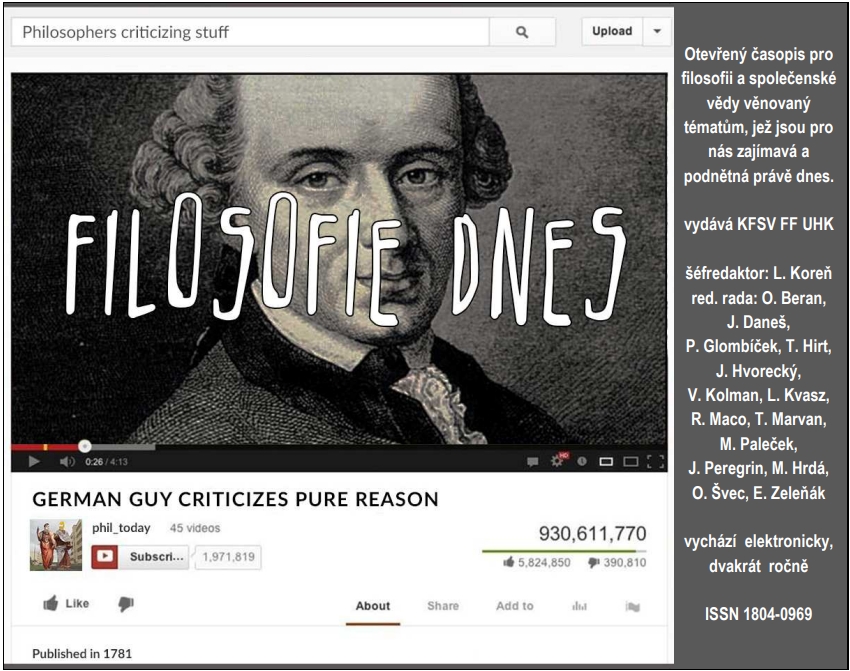Filip Tvrdý o naturalizaci filosofie
DOI:
https://doi.org/10.26806/fd.v9i1.248Keywords:
Filip Tvrdý, Naturalismus, Introspekce, Svobodná vůle, MorálkaAbstract
Článek rozlišuje několik verzí současného naturalismu: revizionistickou, konstruktivní a antireprezentacionalistickou. Revizionistický naturalismus doporučuje nahradit tradiční filosofické zkoumání povahy věcí genetickým zkoumáním původu našich, často mylných, přesvědčení o povaze věcí. Konstruktivní naturalismus akceptuje zadání tradiční filosofie, ale doufá, že dokáže její otázky zodpovědět pomocí více méně vědeckých metod. Antireprezentacionalistický naturalismus je extenzí metaetického expresivismu v tom smyslu, že popírá deskriptivní povahu všech filosofických tezí. Tyto distinkce mohou pomoci klasifikovat jeden z nejexplicitněji naturalistických projektů v novější české filosofii, Nesnáze introspekce (2015) Filipa Tvrdého. Tvrdý oficiálně sleduje genetický, revizionistický projekt, který však nespadá vjedno s antireprezentacionalismem. Avšak v jeho knize najdeme i stopy konstruktivního naturalismu.
The paper distinguishes several versions of contemporary naturalism: revisionary, constructive, and non-representational. Revisionary naturalismus pleads substituting the traditional philosophical inquiry into the nature of things by a genetic inquiry into the origin of our – often faulty – beliefs about the nature of things. Constructive naturalism accepts the program of traditional philosophy, yet hoping that its questions could be answered by broadly scientific methods. Non-representational naturalism is an extension of metaethical expressivism, claiming that philosophical claims should not be understood as descriptive in nature. These distinctions can help us classify the most self-consciously naturalistic project in the recent Czech philosophy, Filip Tvrdý’s Troubles of Introspection (2015). Tvrdý is officially pursuing a genetic, revisionary project, which does not coincide with non-representational naturalism. However, there are also traces of constructive naturalism in Tvrdý’s book.
Downloads
Published
Issue
Section
License
Authors who publish in this journal agree that:
1. Authors retain copyright and guarantee the journal the right of first publishing. All published articles are licensed under the Creative Commons Attribution license, which allows others to share this work under condition that its author and first publishing in this journal was acknowledged.
2. Authors may enter into other agreements for non-exclusive dissemination of work in the version in which it was published in the journal (for example, publishing it in a book), but they have to acknowledge its first publication in this journal.
3. Authors are allowed and encouraged to make their work available online (for example, on their websites) as such a practice may lead to productive exchanges of views as well as earlier and higher citations of published work (See The effect of open access).


